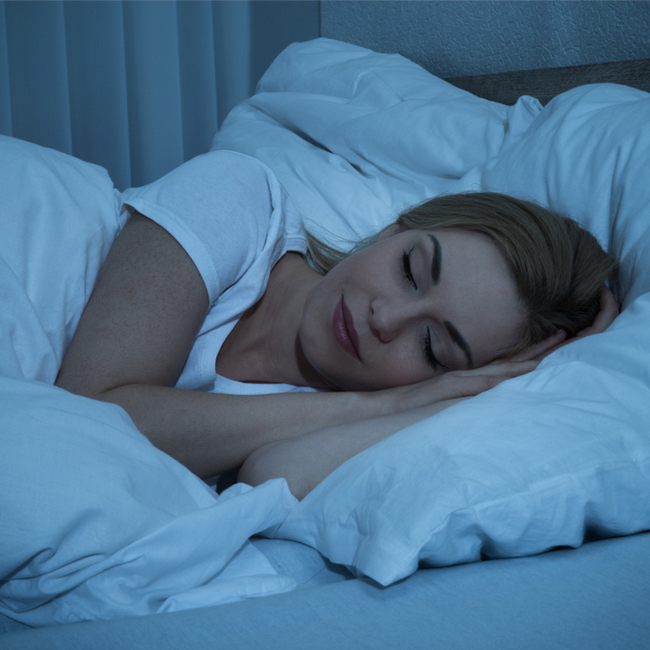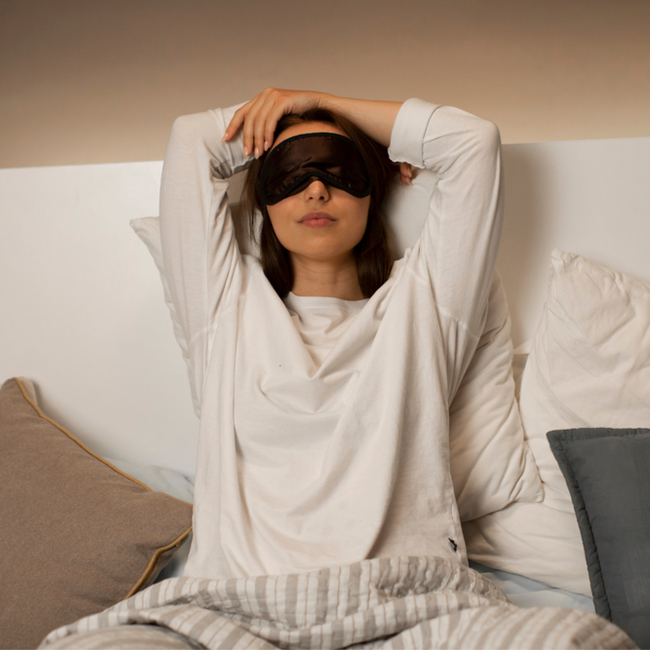This is an archived article and the information in the story may be outdated. Please check the time stamp on the story to see when it was updated last.
Sleep is inarguably one of the most important factors in creating a healthy lifestyle, and a good or bad night of rest has the capability to dictate the entirety of your day. It’s well known that there are a number of habits such as excess phone usage that can impede on a good night of sleep, but it’s less often discussed what you should be doing in order to get the best rest possible and start your day on the right foot.
We checked in with Dr. Nancy Lin, holistic nutritionist and XPRO for YogaSix GO to give us her helpful hints for better sleep, and these are the top four habits she suggested integrating into your daily routine.


1. Optimize your circadian rhythm
Your circadian rhythm is the natural sleep to wake cycle that your body falls into throughout the 24 hours of the day. You often unknowingly take cues from the environment that may prompt you to feel more awake or sleepy, so it can be useful to be aware of the ambiance you’re creating in your home if you want to optimize your sleep schedule. “Exposing yourself to morning light, like the pinks and purples, signals to the brain to stay awake and be productive. Exposure to natural evening light, the oranges and reds, do the opposite,” says Lin.
“Problems arise when we do not get the appropriate and timed natural lights, and overburden are optic nerves with artificial lights, like blue lights from our technology devices,” she adds. Keeping off your phone and using warmer toned light bulbs in your room can help to set the tone for a restful evening while regulating your circadian rhythm naturally.

2. Try blue light glasses
Along the lines of blue light sabotaging your sleep, sometimes we may find ourselves working late and it’s unrealistic to stay away from screens prior to going to sleep. In these cases, wearing a pair of blue light glasses can help to filter out the harsh lighting that your phone screen emits, making it easier to fall asleep even if you’ve been using your laptop right before it’s time to hit the hay. However, when possible, Lin suggests shutting down technology up to a few hours before bed and doing other activities such as reading or drawing that can help to wind down the mind for sleep without stimulating the waking part of your brain.

3. Skip the caffeine
Caffeine has become an integral part of many people’s busy lives, but it’s the very thing that keeps us awake during the day which may also be keeping us up at night. “Especially if you are having trouble sleeping, taking out the stimulants, and preventing undue stress on your adrenal glands, will help you rest better at night,” explains Lin.
“Caffeine must bind with cortisol, so the more caffeine your intake, the more cortisol your body must produce. Cortisol is a stress hormone that not only keeps the extra fat stores from loosening, but it also activates the stress response in the body,” she adds. Instead, try to keep your coffee to a minimum in the morning and when in doubt, have your last cup before 1 PM. At that point, switching to a soothing tea can help to calm the system instead of stimulating it.

4. Keep a regular schedule
Maintaining a consistent schedule from day to day is actually a great way to increase your chance of a better night sleep. Even on the weekend it can be useful to keep up with a consistent sleep, eating, and exercise schedule so that your body can naturally spike in melatonin production at the same time each night. “Your body thrives on consistency and this practice will allow your system organs to predict your body needs and replenish appropriately, each evening when you rest,” says Lin. “Our bodies are incredibly intelligent and will compensate for individual lifestyle needs. So work with your body and create a predictive and consistent schedule. You’ll discover that not only will you sleep better, but you will also feel and operate better as well.”


























